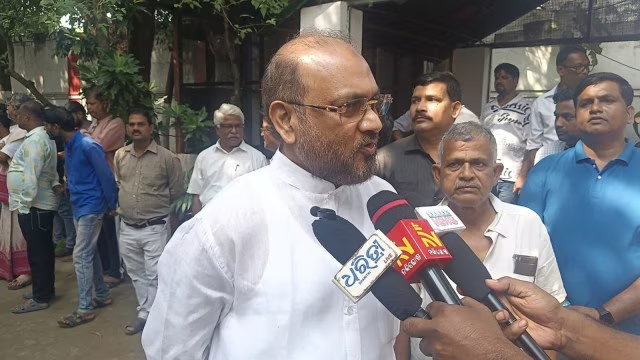 Prime Minister Narendra Modi and UK Prime Minister Theresa May during a bilateral meeting at the G20 summit in Hangzhou, China on Monday. (Source: PTI)
Prime Minister Narendra Modi and UK Prime Minister Theresa May during a bilateral meeting at the G20 summit in Hangzhou, China on Monday. (Source: PTI)
ACKNOWLEDGING that world economy is still weak and downside risks remain, the leaders of G20 nations on Monday decided to shore up growth by coordinating fiscal, monetary and structural policies and rejecting trade protectionism.
In a nine-page, 7,000-word plus communique that took over 40 hours to finalise, the leaders, who met in China’s eastern lake city of Hangzhou, said innovation could be a new and key driver of growth creating more jobs in the long run. Strongly pitched by President Xi Jinping in the run-up to the summit, the Blueprint on Innovative Growth has his imprint all through the communique text. The words ‘innovative’ (eight times) and ‘innovation’ (18 times) cumulatively figure 26 times in the joint statement of the leaders.

There are, however, no specific or concrete actions recommended by the leaders to turn around the world economy in the short-to-medium term. Every leader nevertheless used the forum to highlight her or his own country’s unique issues. The G20 set up in 2008 after the global financial crisis sparked by the Lehman collapse plunged the world economy into a recession. While India wanted the world to take note of terrorist attacks on its soil from “one single South Asian nation”, United Kingdom’s new Prime Minister Theresa May, still recovering from the Brexit verdict, tried to woo foreign investment and China fought for international acceptance of its increased economic and military power despite slowing growth.
An important issue that made its way into the G20 communique relates to excess capacity of steel. Without mentioning China, the leaders said weak recovery and depressed demand has only exacerbated the situation. China accounts for almost half the world’s steel capacity and a 20 per cent or 200 million tonne capacity cut last year has adversely affected its trade and workers. “…it is a global issue which requires collective responses,” the leaders said, and set up a global forum to be facilitated by the OECD.
Another interesting part of the Hangzhou Summit relates to the leaders’ endorsement of the G20 High Level Principles on Cooperation on Persons Sought for Corruption and Asset Recovery. China had originally proposed to set up a research centre that will keep a record of corrupt persons in G20 countries, but many members including India were circumspect about such a centre and had sought more details from the Chinese presidency on the scope of its work, functions and headquarters.
In the backdrop of the Panama Papers leak that revealed the extent of secrecy in the international financial system, the G20 endorsed OECD proposals on criteria to identify non-cooperative jurisdictions with respect to tax transparency. It also asked the OECD to prepare a list before the next summit of jurisdictions that have not made satisfactory progress in implementing agreed standards on transparency.
On illicit money and tax evasion, the communique said, “We recognise the significant negative impact of illicit financial flows on our economies and we will advance the work of the G20 on this theme.” To protect the integrity of the financial system, it was vital to implement transparency standards by all, in particular, with regard to the beneficial ownership of legal persons and legal arrangements.
Story continues below this ad
What also may ease pressure on resource generation in India was the leaders’ suggestion that the Basel III framework be finalised by year-end without any further increase in the overall capital requirements across the banking sector.
The action on climate change got a big boost with both the US and China ratifying the Paris Agreement and submitting the instruments to UN Secretary General Ban ki Moon. While India did not commit to ratify it by December-end, there will be considerable pressure on New Delhi to do so at the earliest. On fossil fuels too, India played its developing country card to prevail upon the G20 not to mention a ‘date certain’ for providing subsidies.
The highlight of the summit and what attracted attention worldwide was the fracas at the Hangzhou airport when US President Barack Obama touched down. No rolling staircase was provided to Air Force One. Subsequently, National Security Advisor Susan Rice was blocked by a Chinese security official. Obama, however, played it down and told reporters he “wouldn’t over-crank the significance” of the airport events. To observers from other countries, it was more a display of China’s rising status in global affairs and its uneasiness over positive affirmation by others.

 Prime Minister Narendra Modi and UK Prime Minister Theresa May during a bilateral meeting at the G20 summit in Hangzhou, China on Monday. (Source: PTI)
Prime Minister Narendra Modi and UK Prime Minister Theresa May during a bilateral meeting at the G20 summit in Hangzhou, China on Monday. (Source: PTI)






























